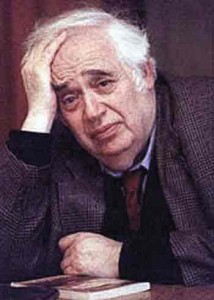
In January 1969 Harold Bloom wrote to Frye to tell him about his developing theory of the anxiety of influence. Frye replied, “You don’t say much about the general direction or scope of your book. If you mean influence in the more literal sense of the transmission of thought and imagery and the like from earlier poet to later one, I should think that this was simply something that happens, and might be a source either of anxiety or of release from it, depending on circumstances and temperament. But of course it is true that a great poet’s maturity brings with it a growing sense of isolation, of the kind one feels in Yeats’ Last Poems, Stevens’ The Rock, and perhaps even Blake’s Job series. I should very much like to hear more about the book and about your progress with it” (letter of 23 January 1969). In his Foreword to the fifteenth printing of Anatomy of Criticism, Bloom picks up part of what Frye had written thirty one years before: “Frye disliked the idea of an anxiety of influence, and told me that whether a later writer experienced such an affect was due entirely to temperament and circumstance” (vii).
There is, of course, a difference between “might be a source either of anxiety or a release from it” and “was due entirely.” It might be that the real anxiety of influence was Bloom’s anxiety about Frye’s influence. What Jonathan Allan calls “distancing” could well be and example of the killing off of the critical father. Frye, at any rate, thought so. Some years later he wrote to Morton D. Paley, “I hope it isn’t too arrogant for me to think that I represent Bloom’s chief anxiety of influence (letter of 17 January 1978).

This reminds me that someone (and I would love to know whom: I’ve never been able to find the reference again) once pointed out, unkindly but with at least some justification, that Bloom’s famous “anxiety of influence” was really just a reworking of Eliot’s “Tradition and the Individual Talent”! Interesting in view of Bloom’s hostility to Eliot.
In partial defence of Bloom, in response to both Bob’s and Joe’s thoroughly reasonable comments, he has modelled himself on the “divine Oscar” with some success. (I know this is not a popular view. I never get very far defending him to most of my colleagues and friends!) And for me, in spite of its obscurities and exaggerations, _The Anxiety of Infuence_ remains one of the indispensable critical books of the second half of the twentieth century.